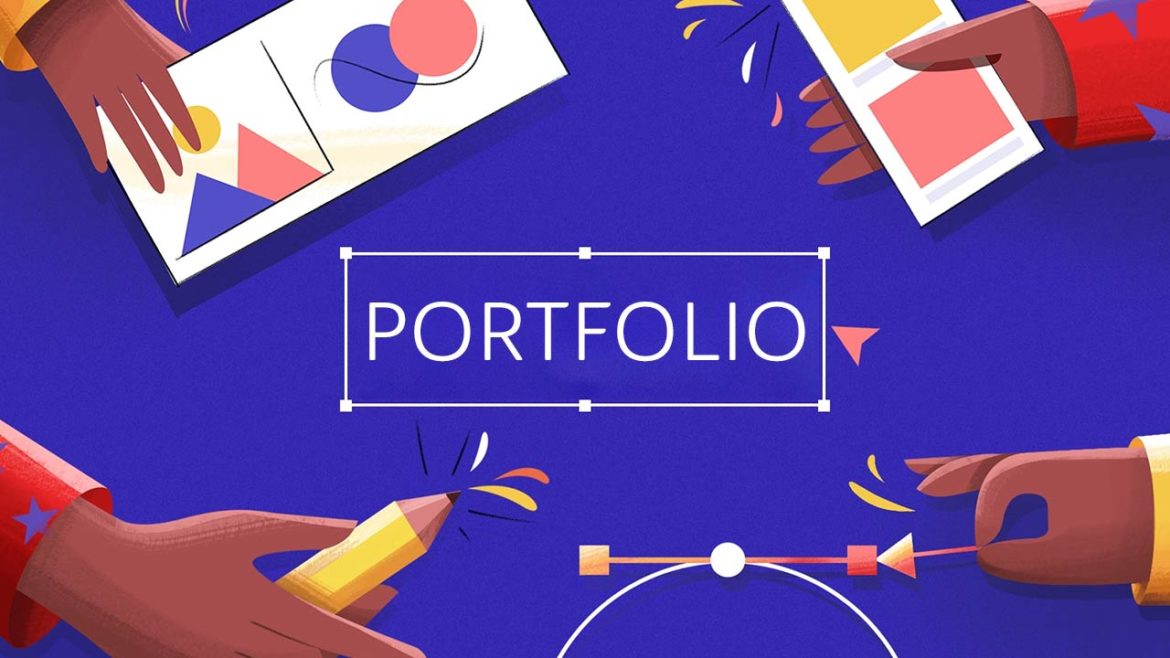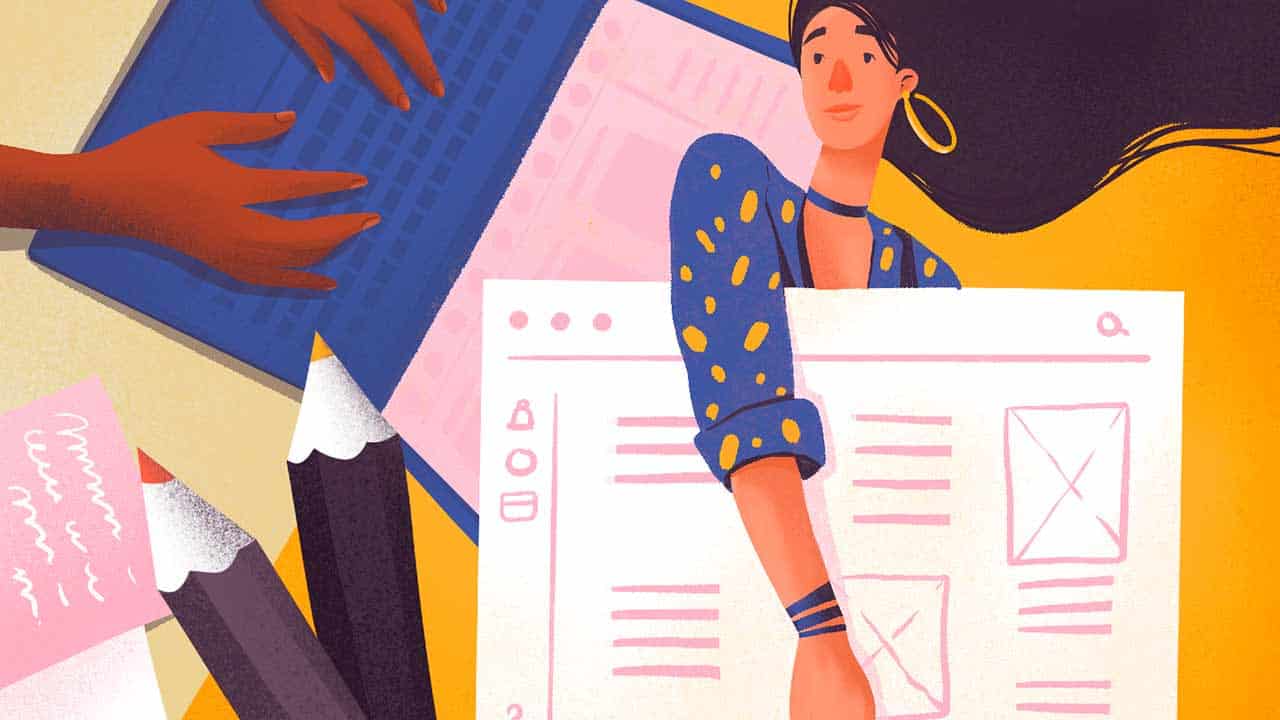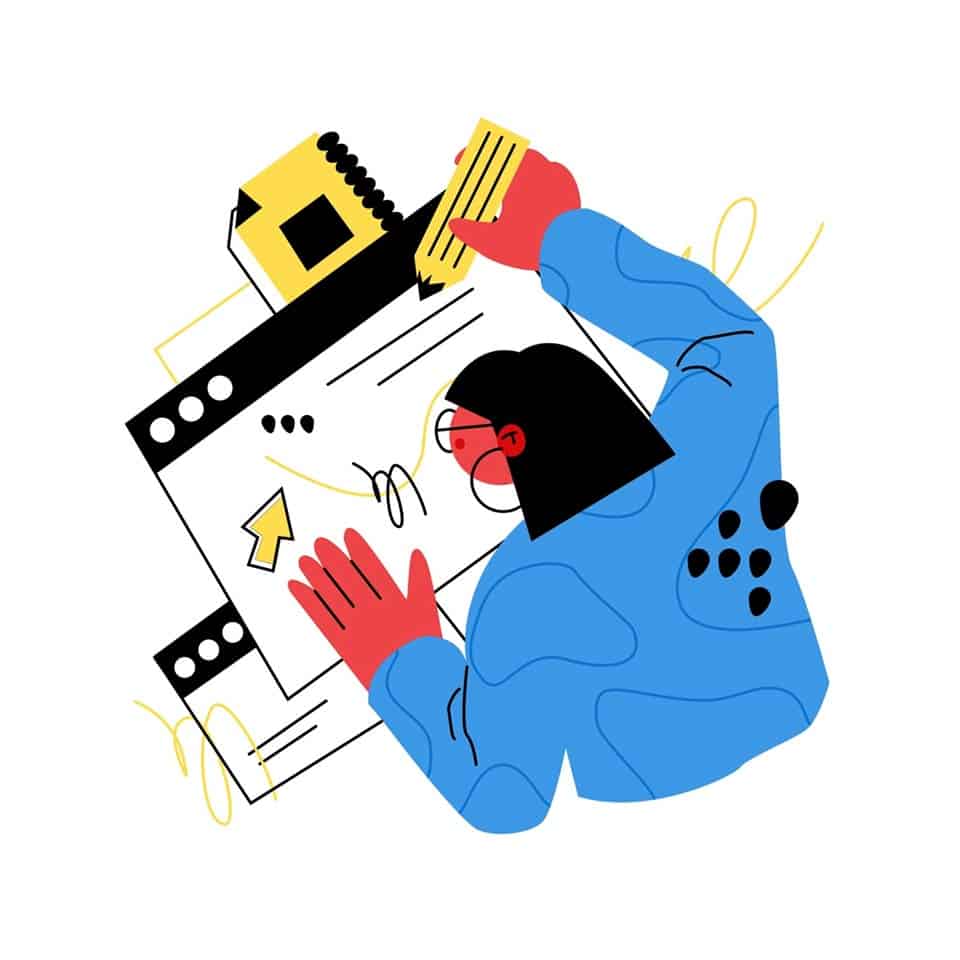
A creative portfolio is an organised collection of creative work showcasing your creativity, practical abilities, and design-thinking skills. Having a portfolio is a must for a Multimedia Artist or anyone involved in the creative industry.

A creative portfolio is an organised collection of creative work showcasing your creativity, practical abilities, and design-thinking skills. Having a portfolio is a must for a Multimedia Artist or anyone involved in the creative industry.
 Art by tubik.arts
Art by tubik.arts
A portfolio reflects your creativity and showcases your work to potential clients. In addition, it serves as a true example of what you are capable of and what abilities you have to offer. At the same time, a resume gives the hiring managers a summary of you, where you’ve worked and what you’ve done. A portfolio does not take the place of a resume, but it can accentuate your abilities and what you can offer in the chosen field. The creative industry relies heavily on presentations or portfolios.
Always be as specific as possible. Your portfolio can become quite an extensive collection of materials. Therefore, it would be wise to select the best works from your portfolio to be included in a smaller interview specific portfolio for interview purposes. The smaller specific portfolio can be presented during the interview and would be less overwhelming to the interviewer.
 Art by Craftwork
Art by Craftwork
Here is a list of possible information to include.
Online Portfolio —is useful in an academic and professional setting. It enables your credentials to be more easily accessible via the internet. An online portfolio can be beneficial for those planning to apply for a job in design, animation, multimedia etc. Several employers may be located far and can access your information more readily.
 Art by Albee Shen
Art by Albee Shen
It is essential to have a portfolio for the students. Portfolios can encourage students to take more ownership and responsibility for the learning process. In addition, in some schools, portfolios are a way for students to critique and evaluate their work and academic progress, often during the process of deciding what will be included in their portfolios.
To conclude, Portfolios present evidence of your relevant skills and abilities to potential employers or clients.